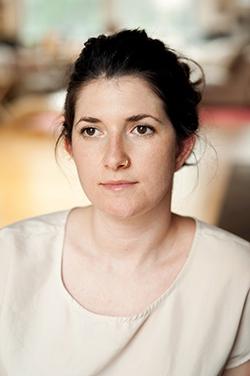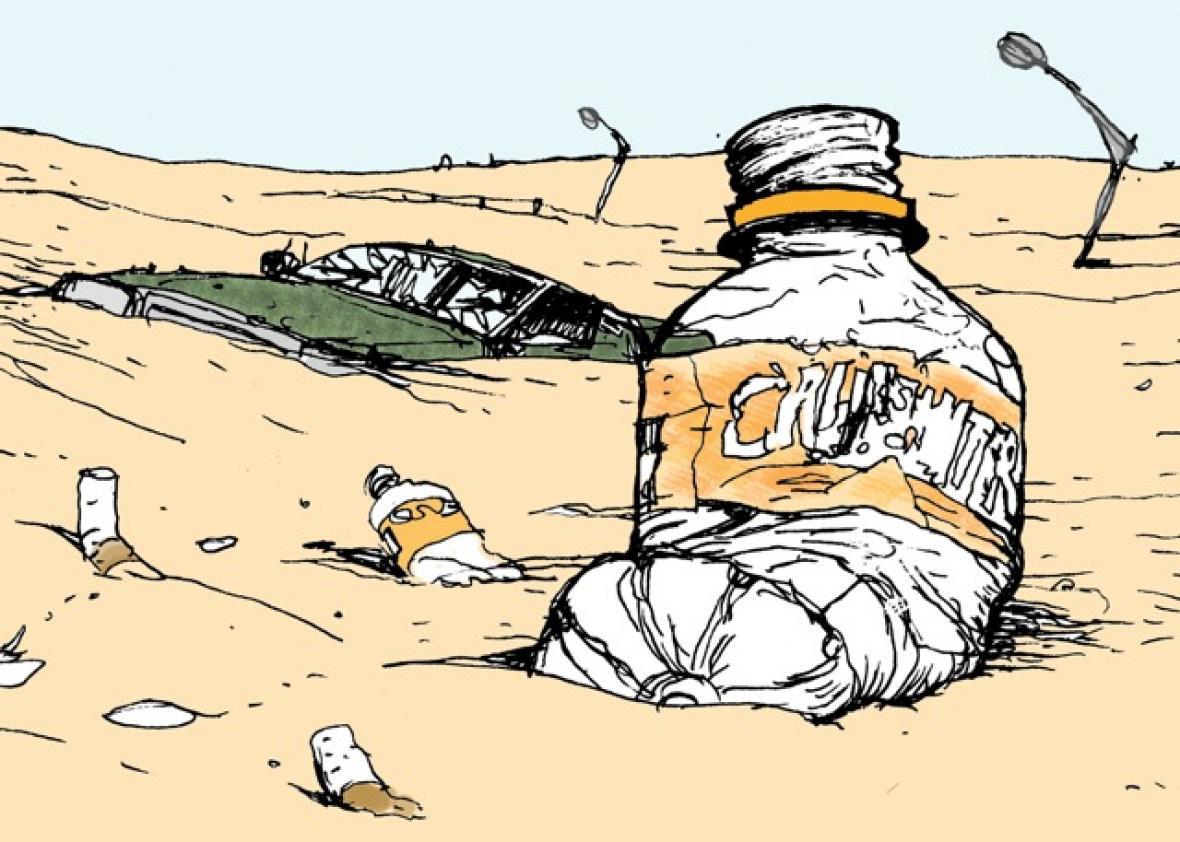Ever since gold first gleamed in the water at Sutter’s Mill, coming to California has represented a particularly glittery iteration of the American dream. On the sunny shores of land wrested first from Native Americans and then from Spanish colonists, you can have it all: a two-car garage and warm weather, upward mobility and palm trees. As every Hollywood star and filthy rich startup founder (and Don Draper) knows, there’s no better place to become the somebody you’ve always wanted to be.
Of course, like most dreams, the Californian dream seems less real when you’re awake. The state’s wealth gap mirrors the worst excesses of the national one. California has the most billionaires of any state (more, in fact, than all but two countries), but 40 percent of the population lives in or near poverty. People of color bear the brunt of this inequality, even though as of 2014, white people make up a minority of the population. In impoverished rural areas, in neighborhoods like L.A.’s Watts, in the far-off exurbs where gentrification increasingly forces the middle class to live, the Californian dream is hard to reach.
In her enthralling debut novel Gold Fame Citrus (named after three of the sirens that have lured people to the state), Claire Vaye Watkins acts as interpreter for the Californian dream. What does the Golden State mean to us? What can the legend of California tell us about our fears and desires? The stories in Watkins’ first book, the Story Prize–winning collection Battleborn, are largely set in the deserts of eastern California and Nevada; the brutality of that landscape both reflects and helps create the intensity of the characters’ emotions. In Gold Fame Citrus, Watkins takes that setting and expands it—literally. The book takes place in a near-apocalyptic California in which the water has run out and the Mojave Desert has grown like a cancer, covering not just California but also much of the Southwest in an ever-shifting mass of sand called the Amargosa Dune Sea. Most people have evacuated to refugee camps on the East Coast, where they’re known as “Mojavs” and treated with contempt.
But a few stubborn citizens remain. One is Luz Dunn, a half-Mexican, half-white ex-model formerly known to the public as “Baby Dunn,” a symbol of California’s environmental collapse. Newspaper headlines made political talking points of her childhood: “Baby Dunn Starts Kindergarten Today Without Green Fields to Play In,” “Last Central Valley Farm Succumbs to Salt: Baby Dunn, 18, Never Again to Taste California Produce.” Luz and her ex-soldier boyfriend Ray are holed up, despondent, subsisting on government-rationed soda and crackers—until they maybe-adopt, maybe-kidnap a toddler who calls herself Ig. Now that they have a young child to think about, they decide to take action and evacuate. But the journey doesn’t go according to plan, and Luz and Ig end up in a cultish community of wanderers and outcasts who believe for various reasons that fate has called them to the dune sea. The group is led by Levi, a charismatic dowser with revolutionary ideas and dark secrets.
If this plot arc sounds oddly familiar, that may be because it shares many details with another debut novel, Edan Lepucki’s California, which was famously Colbert-bumped onto the best-seller list in 2014. In that novel, too, a straight couple starts out barely surviving in a depopulated California. They don’t take a baby in, but the woman is pregnant. As in Gold Fame Citrus, they join a group with cultish vibes and a leader equal parts magnetic and shady. Both books even make symbolic use of the “landscape of thorns” designed to warn future generations away from the nuclear-waste repository at Yucca Mountain. (Neither does a great job of depicting California’s immense racial diversity, though at least the protagonist in Gold Fame Citrus is half Latina.)
Watkins has said she hasn’t read California, and given the poky pace of book publishing, she may well have turned in her novel before Lepucki’s book was even released. But what does it mean about California and its place in our cultural mythos that two authors independently came up with the same basic story about it? What is it about California that screams “man and woman join a cult as the world ends”?
For one thing, California has hosted more than its fair share of collectives, co-ops, intentional communities, and full-on cults: Heaven’s Gate, Jim Jones’ Peoples Temple, the Family, the Symbionese Liberation Army, Scientology, and, perhaps most infamously, the Manson Family. Even my sleepy suburban hometown had one: Lafayette Morehouse, known locally as “the Purple People,” a branch of which grew into OneTaste, the lucrative and shady-seeming San Francisco organization based on “orgasmic meditation.” How many people have chased the Californian dream toward promises of communal, sustainable living, only to find the same old hierarchies and abuses reproduced in the name of socialism or free love or some other vision of utopia? For both Watkins and Lepucki, California represents humanity’s best and worst impulses—our earnest insistence on sketching out blueprints of the perfect world, and our inability to ever actually finish construction.
Watkins is in a unique position to write about this aspect of the Californian dream. Her father, Paul Watkins, was once Charles Manson’s right-hand man, and her fictional cult leader Levi rings chillingly true, from the homegrown sedative he circulates among his followers to the manipulative ways he uses sex. A scene in which he coerces the protagonist into faux-therapeutic group sex is wrenching to read, not just because of the nonconsensual nature of the act but also because it emanates the same creepy vibes as many real-life fringe groups. (I could imagine Levi fitting right in at OneTaste.)
Another reason both California and Gold Fame Citrus use the same setting is that California is just an interesting place to watch Armageddon play out. There’s already so much disparity between rich and poor and between urban and rural that the state is sort of a microcosm for the whole world. The ways California falls apart predict many of the ways New York and Washington and Mexico and Nigeria and Afghanistan will fall apart. Plus California has everything from desert to chaparral to rainforest, which makes social and environmental degradation highly visible and highly dramatic.

Photo by Heike Steiweg
But Gold Fame Citrus does more than California with that setting, especially its ecology. In Lepucki’s version of the apocalypse, resources are scarce, especially for those who aren’t rich, but nature is not all lost. Survivors can forage for mushrooms, drink from streams, and grow a decent amount of produce. In Gold Fame Citrus, on the other hand, the “drought of droughts” has wrung out the whole western half of the country completely and irreparably. Every iconic palm tree is “drought-weary, bowed in half, its fruitless head laid on the lifeless ground.” It’s extreme, but as real-life California bakes and burns, it feels frighteningly possible. Gold Fame Citrus’ catastrophe is the one Californians try not to think about each time we read another newspaper article about almonds or pass another billboard urging us to take shorter showers.
For someone who understands Californians’ psyches so deeply, Watkins is also remarkably attuned to the resentment outsiders often feel toward residents. Note the schadenfreude with which Californian refugees are treated in Gold Fame Citrus—schoolyard chants making fun of the “Mojavs,” signs reading, “Mojavs Not Welcome. No Work for Mojavs. Mojavs Keep Out.” Our arrogant assurance that everywhere else is inferior, the fact that we’ve never had to cope with a real winter—we were bound to self-destruct sooner or later. Isn’t it some kind of poetic justice to see the Californians who once looked down on Okies have to flee their own Dust Bowl and bear their own half-slur of a nickname? Isn’t there something karmic about watching the place that imagined and reimagined the end of days in countless Hollywood blockbusters succumb to its own compulsive death fantasy?
Many of the book’s characters believe that “they”—the establishment, the Man—“took the water.” “We’re told this is a wasteland because they need it to be a wasteland,” cult leader Levi tells Luz. He thinks the government intends to nuke the whole region: “Hard to sleep in the green East with a mountain of sand bearing down on you.” Partially this is just a spot-on portrait of the ideological grandstanding so popular in California, but it’s also the dark side of what the state stands for in the nation’s consciousness: excess, immodesty, weakness. In Gold Fame Citrus, it’s California’s turn to suffer for once.
But Watkins also captures California’s peculiar magic, the wild and beautiful hope that has attracted people to what Luz calls “the land of could” for generations. Even in the midst of disaster, perverse hope abounds. Like the new species (“blue chupacabra,” “Mojave ghost crab”) that Luz’s community believes have sprung up in the Amargosa. Or their stubborn pride about living in a unique and constantly changing situation. Or the raw charisma of a cult leader and the zealous belief that this place, in this time, is going to become heaven on earth.
Luz beats herself up about her West Coast tendency to “believe … only the most absurd Disney fantasies—the canyon menagerie, the Hollywood escape”—but at least in California, you get to believe in the absurd fantasies alongside the “con artists and sooners, dowsers and gurus, Pentecosts and Scientologists … Fluffers, carpetbaggers, migrant pickers … entrepreneurs in never-were garages … Malibu Barbie and Manzanar. San Simeon and San Quentin. Neverland Ranch and Alcatraz.”
California has always exerted a “chemical, pheromonal, elemental” pull on people, promising gold, celebrity, startup success. Even the Amargosa Dune Sea, in its earlier incarnation as the Mojave, has promised hardscrabble glory to generations of settlers. The promises are false more often than not, but they’re what make California California, and Gold Fame Citrus shows us why we’ll keep believing in them even when the world as we know it starts to end.
—
Gold Fame Citrus by Claire Vaye Watkins. Riverhead.
See all the pieces in the Slate Book Review.
Sign up for the Slate Book Review monthly newsletter.
